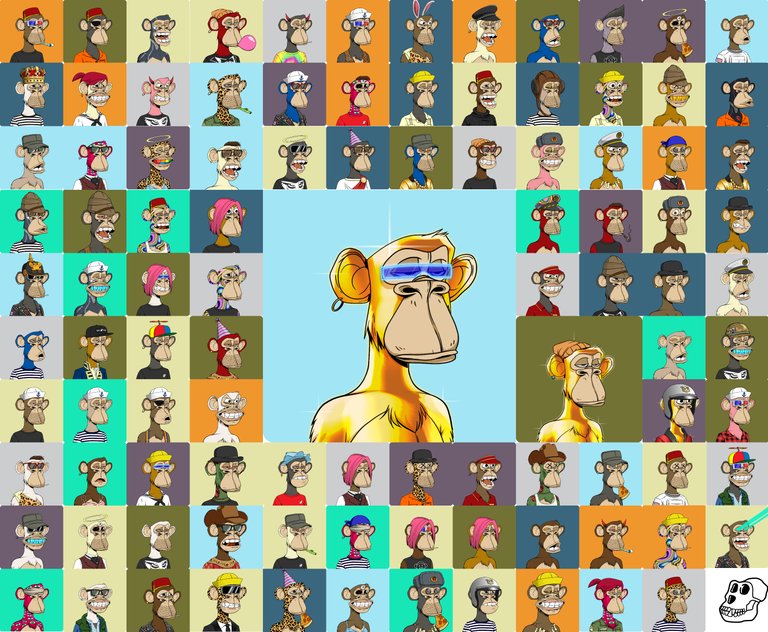The use case for NFTs is seemingly vast, but do they actually add any value at all?
In their lecture “NFTs: More than Digital Art”, Drs. Quinn and Jonathon Button discuss the use case for NFTs and how they can be valuable for more than just art ownership. They detail how NFTs can be used for music, fashion, membership mechanisms, the metaverse, and even sporting events. The presenters claim that NFTs have a wide range of uses, but their central premise for the value of NFTs remains muddy to me. Whether for art or any of the other wide range of uses they claim NFTs are valuable for, I feel NFTs largely have no utility factor and are largely and seemingly only a novelty. I expand on some of my larger takeaways below.
Novelty v. Utility
I have always been an NFT skeptic. I never saw their use when they first started to become culturally relevant a few years ago. The most famous NFTs I can remember were the ‘Bored Ape’ NFTs. They claimed to be products that could retain and increase in value, and the fact that they used blockchain technology to prove ownership was interesting. Though I only saw them as novelties. That is not to say that novelty products are bad, because people purchase novelties all the time. When people are on vacation at the gift shop, when they find a new knick-knack at the store for their shelf, etc. However, it’s a personal experience and not often novelties are used for anything more than personal satisfaction, that is, other than in creative products like art and jewelry (and I am sure there are some other uses I am forgetting). When I first learned of NFTs, I largely saw them as risky investments in digital art that could increase in value but likely wouldn’t. I think I still see NFTs as novelties or, for a very select few, as risky investments into art that could increase in demand but probably won’t.
It boils down to the fact that there seems to be very little evidence from my perspective that NFTs provide any utility at all in the real world other than just simply being a novelty. Virtually all of the examples that the presenters provided either (a) required users to be convinced to find utility in the digital world or (b) mimicked products that already existed. For example, the “hang your NFT art in the metaverse” is kind of silly to be. First, from virtually everything I have seen online, the Metaverse from Meta is not something that users are flocking to. In fact, from my perspective, it is seen as something that is laughed at by Gen Z on social media as a gimmick. Seemingly all of the use cases that the presenters provided required users to buy into some digital marketplace to reap utility, which I do not find convincing. Second, many of the “rewards platforms” that the presenters discussed already exist without blockchain, so why would NFTs add value if all they would do is make rewards programs more complicated? Additionally, I found the RFID chip in the hat and LV bad to be pretty silly as well. The whole point of NFTs is that they are digital. For one, the RFID chip can be ripped out and destroyed, making blockchain ownership useless. Further, how is the blockchain any different from a digital ownership log? I just simply don’t see how NFTs are usable in the real world at all. Maybe I’m wrong, but that is just my opinion.
Bubble, Not Blue-Chip
So, if NFTs are nothing more than art, do they add any value in that sector? I would say not. “Blue-chip art” is art that has a high retention of value and will likely continue to increase in value as long as it is held, despite market trends. This can apply to stocks as well (as in “blue-chip stocks”). Bottom line: NFTs are not blue-chip art. Instead, I see the valuation of NFTs on a bubble that has already burst. Similar to Supreme shirts that the presenters mentioned: NFTs are products that a few years ago were surrounded by so much hype and resold for profits, but now from what I see, aside from a few outliers, are mostly worthless novelties. That is not to say that products rooted in hype are not valuable, but it is to say that any value they do possess is highly volatile and not guaranteed.
So, while I appreciate Drs. Quinn and Jonathon Button for sharing their passion for NFTs, I just don’t think I am convinced that NFTs present any real value at the present moment other than creative novelty. And that’s ok! I think there is a market for collectors and resellers in this space, though. And I do think that as the world continues to shift more toward the digital space, NFTs could see increased value. But right now, I still see the physical world as our immediate reality and NFTs have a lot of developing to do before they can provide any real sense of utility.
While I have explored various perspectives in this essay, it is important to note that I do not necessarily ascribe to any argument made here 100%. This is a writing exercise, and I sought to explore various perspectives after watching the lecture, as per the assignment instructions.
